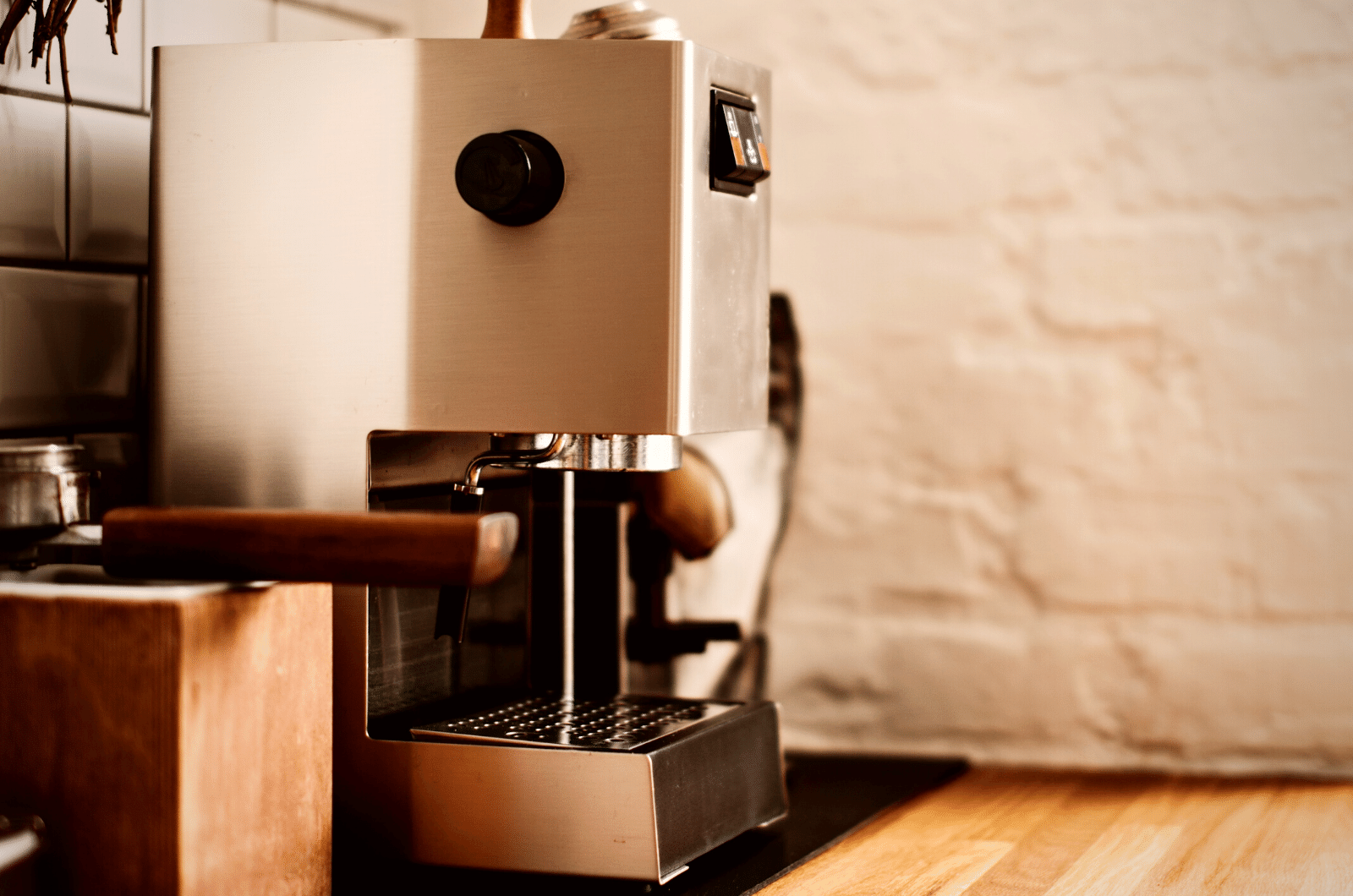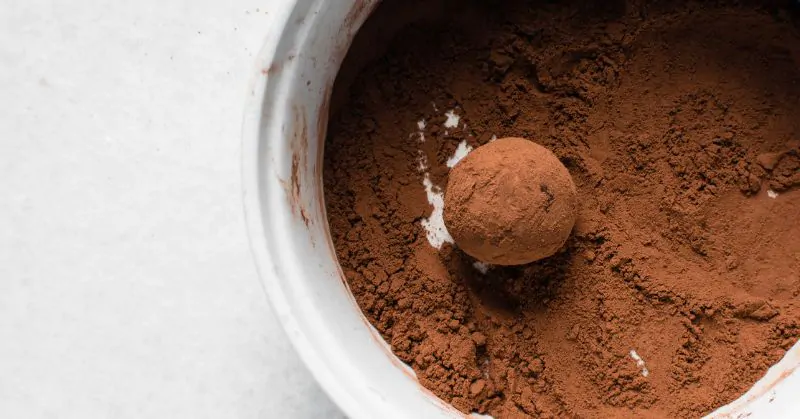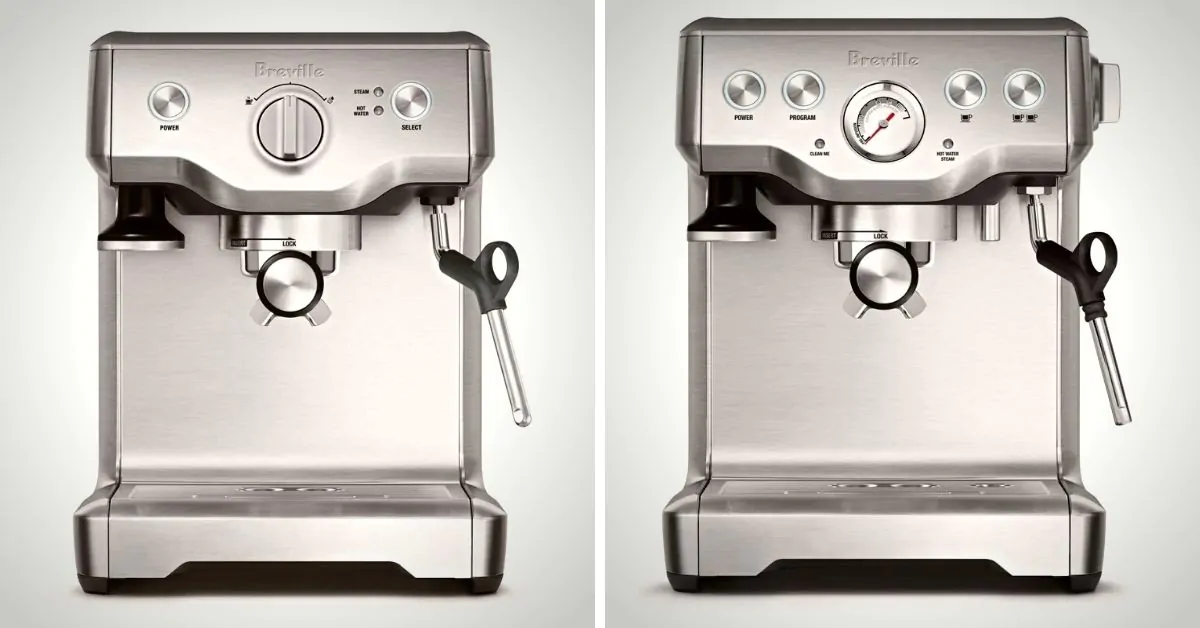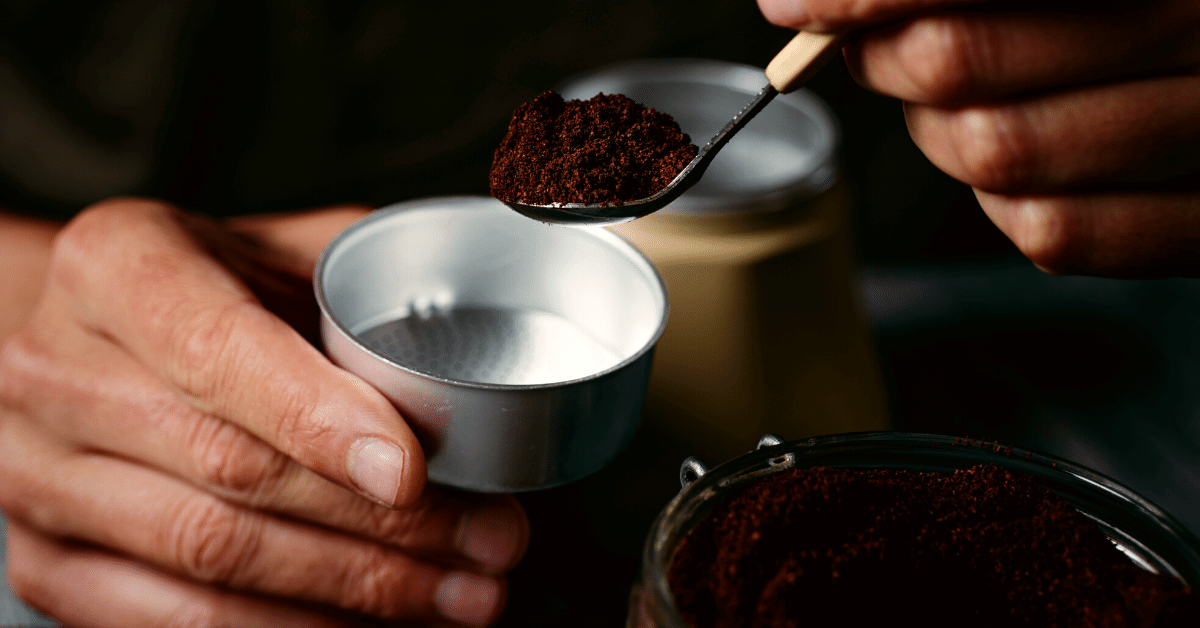How long do coffee makers last? Learn all you need to know about the life expectancy of coffee makers and how to maintain them properly.
Your dear coffee maker is having a rough time? Naturally, you cannot expect it to work flawlessly forever.
But how long do coffee makers last?
I’ve read everything I could find about this topic, so you don’t have to.
While there’s no definitive answer, the average lifespan is about 5 years. However, a couple of factors can influence how long your coffee maker will serve you.
In this article, we will go through all the signs of the potential end of your machine and how to prolong its life.
Let’s not waste any more time and start!
How Long Does Coffee Maker Last?
If you’ve had your beloved coffee maker for some time now, this question probably starts to pop up.
The lifespan of a coffee brewer depends on a few different variables:
- the type of brewer
- the overall quality of the machine
- how well you clean and maintain it
- how often you use it
The average lifespan is about 3 – 5 years.
But, from my experience, that number is just orientational.
You can buy a low-quality brewer, and despite all your efforts to keep it running, it will die after a year or two.
The first coffee machine I bought for my apartment was a cheaper one because I was on a budget. Just by the look of its plastic exterior, I knew it wouldn’t last for too long. It gave up after just a year because no service could help fix it.
On the other hand, if you invest a little bit more money and take good care of it – it can last for a decade. My mom has had her drip coffee maker for about 10 years now. I swear, it’s like a part of my family.
PRO TIP
If you’re looking to buy a new coffee maker and want one that will serve you for a long time, my advice is to look for the reviews of the particular brand and model you’re interested in. That can give you valuable insights about the machine and what to expect regarding its performance and lifespan.
What Can Cause Your Coffee Maker To Stop Working?
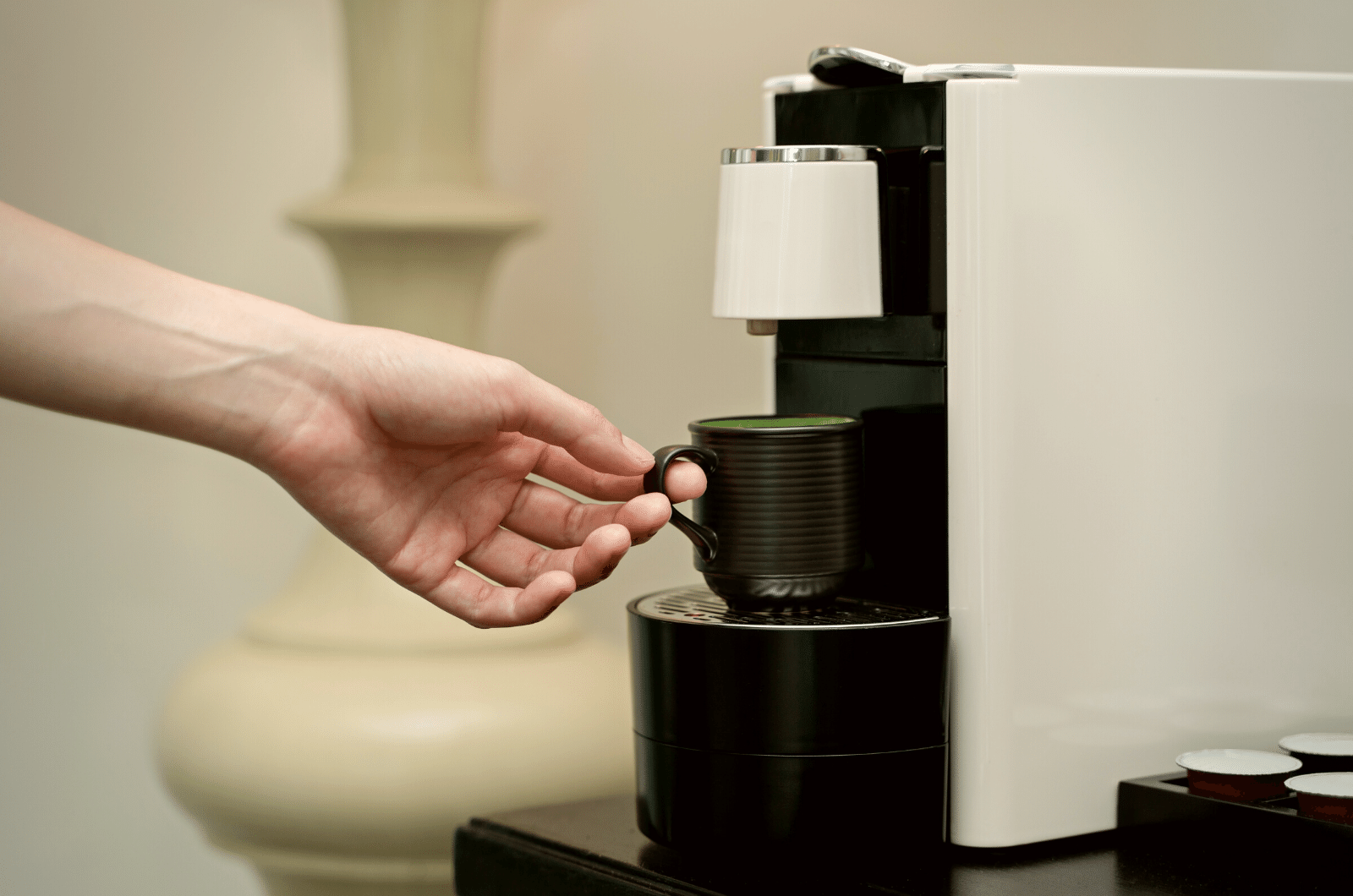
Coffee makers today have pretty simple systems and electronics. Most of the problems can be fixed, and almost all parts can be replaced with new ones.
Bigger brands have their own services, where professionals can help you out.
That means coffee makers are repairable, and you don’t have to run and buy a new one the first time it shows signs of weakness.
But, like any other house appliance, coffee makers won’t last forever. Eventually, they will wear out and just stop working. And at that time, service won’t help.
So, what can bring the death penalty to your coffee maker?
Actually, not many things:
- The overall quality of the machine is a crucial factor. If all the machine parts are built of cheap materials (like lower-quality plastic), they will wear out faster.
- If your coffee maker is working every day, making more than a couple of cups, its lifespan will be shorter. So, if you are a dedicated coffee drinker or live in a household where everyone wants a couple of cups a day, your machine will eventually wear off.
- Dirt and limescale inside the system of the machine are the biggest enemies. They can clog and eventually irreparably damage the vital parts of it. How well you take care of it and how often you clean it can significantly impact the lifespan of a coffee maker.
- Although most electric parts (like the thermostat or heating element) can be fixed or replaced, sometimes it’s not the case. When some electric component is fried or damaged to the point that it can’t be replaced or repaired will mean the end of your coffee maker.
How To Prolong The Lifespan Of A Coffee Maker?
So, can you do anything to keep your brewer around for longer?
Luckily, yes. You can take a few simple measures to help your coffee machine run longer.
Clean it!
Regularly cleaning and descaling your machine is essential. The well-maintained coffee maker will work smoothly for much longer.
My mom says that the only reason her brewer is still working perfectly is that she cleans it on a regular basis. And a regular basis means descaling it at least once a month and doing some basic cleaning (washing the filter basket, carafe, and water tank) at the end of each day.
Take some descaling solution, and run a cycle. You’ll notice that even the taste of the brewed coffee is much better when it comes from a clean machine.
TIP
Although you can use white vinegar or other household products to clean your coffee maker, it might not always be good for your machine. I recommend using a dedicated descale solution or at least double-checking the safety of using other products for cleaning your machine.
Use Better Quality Water
Hard water contains metals and impurities, and it won’t only affect the taste of your coffee but the machine’s lifespan too.
If your tap water is very hard, limescale will always form fast, which will impact the machine’s system.
In this case, you should try using filtered water. It will still have minerals that will form limescale, but much less than hard water.
Get a Coffee Maker With a Water Filter
Some coffee makers have built-in activated charcoal water filters.
Charcoal filter captures a high percentage of the impurities from the water. One of these is chlorine (which can be harmful to humans), but also mineral sediments and other dissolved solids.
If you’re deciding which brewer to buy, invest in the one with a water filter. It will keep your coffee maker clean longer and give you a good-tasting brew without any additional faulty flavors.
Don’t forget to change the filter regularly, at least once every 2 months.
Prevent Electrical Problems
Until recently, I didn’t know about this: if the machine is plugged in, electricity still runs through the electric circuit even if the machine isn’t turned on. That means that the machine is still working.
As long as electricity runs through it, an electric short-out can occur and cause serious problems.
Switches can be entirely shorted out and left without electrical continuity, and wire joints can be burnt. Even the motherboard, which controls the whole appliance, can be fried. That can easily be the death penalty to your coffee maker.
So, unplug the machine when you’re not brewing coffee. Let it rest and prevent possible electrical problems.
The Signs You Need To Change Your Coffee Maker
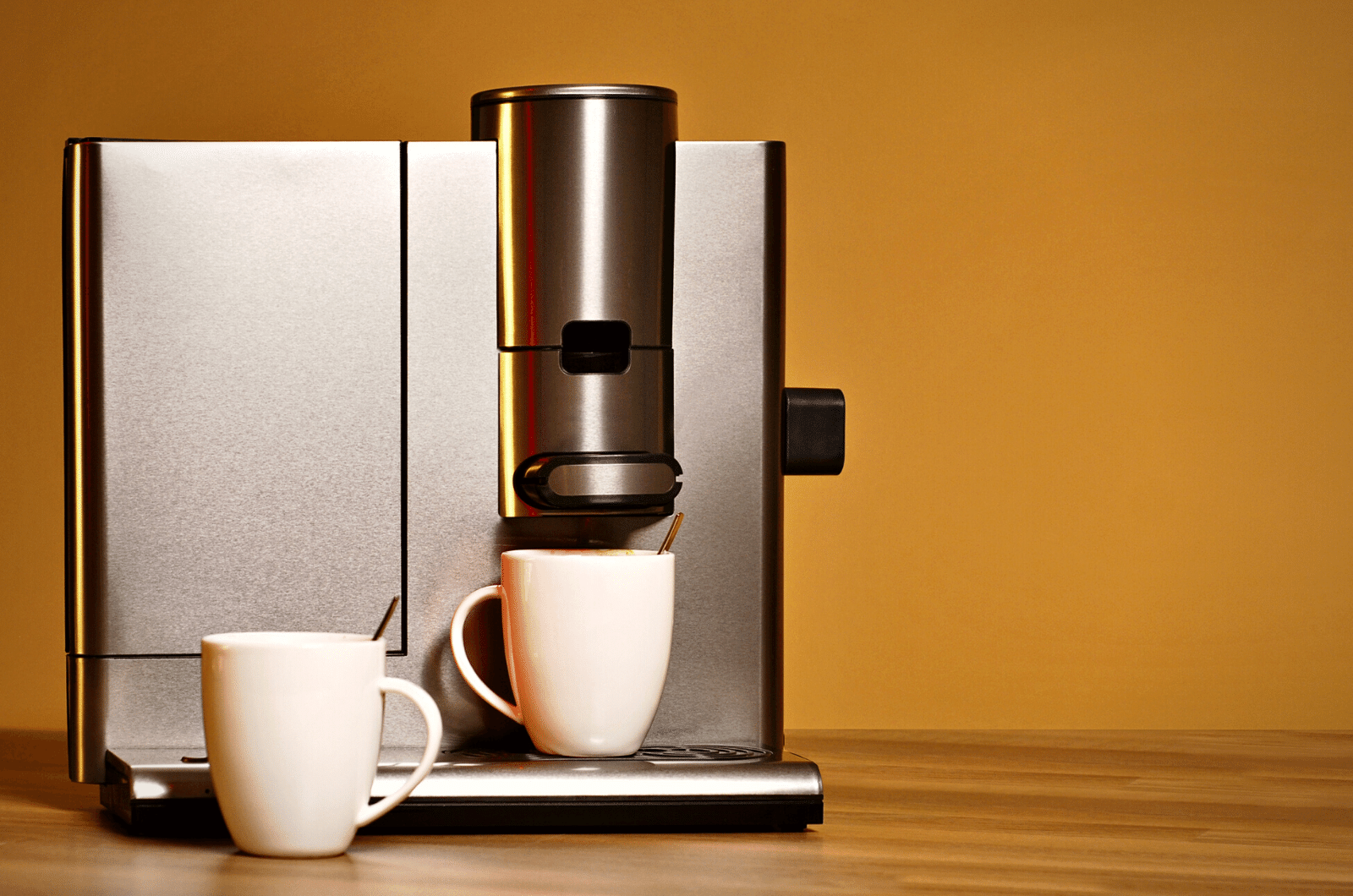
How to recognize that your machine is getting near the end? Watch for these signs so you won’t be surprised by the last brewed cup:
- It takes forever to brew a cup: it gets slower each day, stops in the middle of the brewing, or makes unexpected pauses.
- The water is leaking from the coffee maker.
- The machine is not making hot coffee.
- Your brew tastes bad, even after descaling.
These don’t have to be necessarily signs of death. First, try to descale your coffee maker. If the problem is still there, you can take it to the service.
But, if you tried to fix it, and it still doesn’t work how it should, then you should consider buying a new coffee maker.
Do Expensive Coffee Makers Last Longer?
Although I would like to tell you that expensive brands will last forever, it’s not the truth.
Even the fanciest machine will die if it’s almost completely clogged by limescale and still makes a full coffee pot a day. Torture!
And if you take good care of your low-budget coffee friend, it can surprise you and live for years.
But, the brand and price can be a good lead about the quality of the machine.
It probably means it is made from better materials, has a longer warranty, and has its own official service (and not less important – great coffee).
Keurig or Nespresso will most likely last longer than some no-name coffee maker you got from a supermarket for 15 bucks.
Wrap Up
And that would be it, folks.
The average lifespan of a typical coffee maker is about 5 years. But this period can drastically change.
The biggest factors are how well you’re taking care of it and cleaning it and the overall quality of your brewer.
If you invest in a decent machine and clean and maintain your coffee maker regularly, it will make good coffee for years and years.
Are you already looking for a new coffee maker? We have a list of the 11 best coffee machine brands for you!

